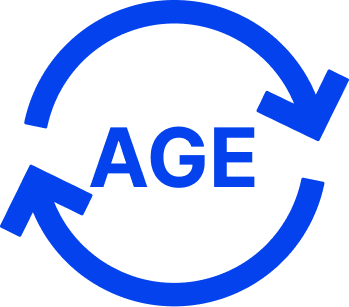Georgia Homeschooling Laws and Resources
If you’re exploring homeschooling in Georgia, we have a comprehensive guide to dive into so you can begin homeschooling.
Homeschooling in Georgia Overview
Notice of Intent Required: Yes
1 Option for Homeschooling: Home Education
Subject or Curriculum Requirements: Yes
Attendance Age Requirements: 6-16
Record-Keeping Requirements: Yes
Assessments or Evaluations Required: Yes
Proof of Immunization Required: No
Table of Contents
Georgia Homeschooling Laws and Regulations
How to Start Homeschooling
Notice of Intent
Qualifications to Homeschool
Subject and Curriculum Requirements
Mandatory School Age
Attendance Requirements
Record-Keeping Requirements
Evaluations and Assessments
Required Immunizations
Resources for Homeschooling Families in Georgia
Homeschool Groups and Co-ops
Organizations and Associations
Sports Opportunities
Homeschooling by City
Homeschool Field Trips
How Our Curriculum Can Help
Homeschool FAQ
Home Educators–great news! Age of Learning is an approved vendor for ESA grants in Georgia. Grant funding can cover the subscription costs of ABCmouse, Adventure Academy, and Reading IQ to provide high-quality learning resources for your child. Learn how to use your ESA funding to purchase ABCmouse.


How to Start Homeschooling in Georgia
As you start your homeschooling journey, the first step will be deciding what your homeschool will look like. If your child is currently enrolled in public school, you’ll need to formally withdraw them from school to avoid truancy problems. Then you can submit your Declaration of Intent to homeschool to the Georgia Department of Education.

Georgia Homeschool Declaration of Intent to Homeschool
State law requires homeschooling parents or guardians to submit an annual Declaration of Intent (DOI) form to the Georgia Department of Education (GADOE). They have implemented a great online tool for submitting your annual Declaration of Intent. Simply go to the site and fill out the required information. If you’re just getting started with homeschooling, a Declaration of Intent must be submitted to the GADOE within 30 days after beginning your homeschool and by September 1st every year after that.
TIP: If you prefer to submit your DOI offline, you can write the letter yourself and submit it via email, mail, or fax.
Make sure your letter includes these required areas of information:
- Name and age of students
- Address of homeschool
- The beginning and end dates of the school year (must be at least 180 instruction days)
- Local public school district
- Printed name and signature of parent or guardian
- Date of submission
Whether you submit online or offline, saving a copy of the annual DOI for your records is a good idea. It may be helpful when your student(s) are getting a driver’s license, work permit, applying to college, or enlisting in the military.

Qualifications to Homeschool in Georgia
To be a homeschool teacher in Georgia, you must have your high school diploma or GED. Beyond that, teaching licenses, training, or certifications are not needed. Parents and guardians can teach the child(ren) themselves or hire a tutor, who also needs a high school diploma or GED to teach.

Georgia Homeschool Subject and Curriculum Requirements
You are not required to use a specific curriculum or teaching method in your homeschool program. However, Georgia requires that you provide a baseline academic program that includes reading, language arts, mathematics, social studies, and science.
As the home educator, you can teach Georgia’s required subjects so they align with your child’s needs and your homeschool goals.

Mandatory School Age in Georgia
Georgia education law requires that students attend school or a home study program from age 6 to 16. As a homeschooler, you will need to submit a DOI annually during this age range or enroll your child in a public or private school.

Georgia Homeschool Attendance Requirements
When you submit your DOI, remember to include the start and end dates of your school year. The school year must be a minimum of 180 days, with an expectation that each school day consists of 4.5 hours of instruction.
TIP: Georgia only requires you to submit attendance records within your annual DOI.

Georgia Homeschool Record-Keeping Requirements
Home educators are required to write a report on the progress their child made in every required subject at the end of each school year. While this report doesn’t have to be submitted to public school officials, you’ll want to keep it in your records for at least three years.
TIP: We also recommend keeping copies of your student’s test scores and immunizations or exemptions and tracking their progress in required subjects and hours taught.

Georgia Homeschool Assessments and Evaluations
As a homeschooling parent or guardian in Georgia, it’s important to know that your student will need to participate in a nationally standardized testing program at least once every three years, starting at the end of 3rd grade.
If this sounds intimidating, don’t worry–it’s not too complicated! You can quickly find a testing vendor by searching online or contacting a local homeschool association for information on testing locations and times. Keeping records of these tests is essential, so be sure to retain them for your student’s evaluation.
TIP: Georgia Milestones, End-of-Grade, and End-of-Courses Assessments are not considered nationally standardized tests.

Required Immunizations for Homeschoolers in Georgia
Children homeschooled in Georgia are not required to be immunized. It’s important to note that students enrolled in public schools are required to vaccinate but can file a religious or medical exemption.

Resources for Homeschool Families in Georgia
Homeschooling families recognize the value of enriching their children’s education, promoting socialization, and gaining support for their homeschooling journey. You can achieve this by connecting with homeschool groups, co-ops, or larger associations.
These connections offer a wealth of resources and opportunities for homeschooling families to connect with others, exchange ideas, and learn from each other.
Whether it’s through local homeschool groups, co-ops, or larger associations, these connections can make a significant impact in helping your family create a dynamic and fulfilling homeschooling experience.

Homeschool Groups and Co-ops in Georgia
Creating or joining a homeschool group or co-op can have many benefits for your family. A homeschool group can provide a sense of community and allow your children to make friends with other homeschoolers. They can also participate in group activities such as field trips or physical education. As a home educator, you can connect with experienced homeschoolers and find support through online groups.
TIP: A homeschool co-op allows you to share the teaching load with other adults who have different skills and talents.
Your children can consistently learn alongside other homeschoolers and benefit from a variety of teaching methods and personalities. Ultimately, both homeschool groups and co-ops can provide valuable support and enriching experiences for your family’s homeschooling journey.
Online groups are a great place to begin building your homeschool network. Here are some popular online groups in Georgia:
Homeschooling and Unschooling Resources, Questions, Tips, Support, And More

Homeschool Organizations and Associations
Homeschool families can benefit greatly from the resources and support offered by homeschool organizations and associations. These groups typically provide access to events, information, resources, legal assistance, and advocacy efforts, making them invaluable assets to the Georgia homeschooling community.
TIP: Compared to more casual groups or co-ops, homeschool associations are typically more structured and may require membership fees.
Georgia’s only state-wide homeschool association is the Georgia Home Education Association (GHEA). This homeschool organization is a powerful resource and advocate in the Georgia homeschool community. GHEA strives to foster community, offer support, and empower homeschooling families. GHEA defends the rights to homeschool in Georgia for all families, regardless of religious affiliation.

Sports Opportunities for Homeschoolers in Georgia
A recently passed law gave homeschooled students access to public school sports. To take advantage of this, you’ll need to do these things:
- Thirty days before the public school semester begins, submit a written notice to your local public school explaining that your child intends to participate in the extracurricular activity.
- Include a copy of your child’s most recent annual progress assessment report and write a letter verifying that your child is passing their homeschool courses and meets the requirements to participate in extracurriculars.
TIP: If you have recently withdrawn your child from public school, they are ineligible to participate in public school activities for 12 months.
If public school sports aren’t supporting your homeschool goals, here are some other fun options to get your child involved in athletics.
| Group Name & Website | What Sports They Cover | What Area in Georgia |
| Adrenaline FX Training | Homeschool PE, weightlifting, endurance | Canton |
| Hi-Five Sports Zone | Basketball, baseball, football, soccer | Alpharetta |
| Barons Christian Baseball | Baseball | Duluth |
| Swanee Sports Academy | Volleyball, basketball, and more! | Suwanee |

Georgia Homeschooling by City
Atlanta
The homeschool scene in Atlanta is vibrant and vast. You’ll find great access to parks, libraries, museums, and athletic opportunities. Additionally, there are numerous groups and co-ops to engage with.
Check out these great homeschooling finds in Atlanta:
- Piedmont Park: Piedmont Park is a 185-acre park in the heart of Atlanta that offers numerous recreational opportunities, including walking trails, sports fields, playgrounds, and picnic areas. Homeschoolers can take advantage of the park’s educational resources, including guided nature walks, ecology workshops, and gardening programs.
- Atlanta-Fulton Public Library System: The Atlanta-Fulton Public Library System offers numerous branches throughout the city, each with a wide range of resources and educational programs for children and young adults. Homeschoolers can access online databases, borrow books and media, attend workshops, and participate in book clubs and other social activities.
- Atlanta History Center: The Atlanta History Center is an interactive museum that offers hands-on exhibits, artifacts, and educational programs that help bring history to life. Homeschoolers can utilize the many educational resources available, including guided tours, workshops, and homeschool days.
- Alliance Theatre: The Alliance Theatre offers various performances and educational programs for children and young adults, including plays, musicals, and theater workshops. Homeschoolers can look forward to homeschool days, which offer discounted tickets and special programming.

Georgia Homeschool Field Trips
Georgia offers a diverse range of field trip opportunities for homeschoolers to supplement their education and gain hands-on learning experiences. From historical sites to natural history museums, there is something for every interest and subject area.
Here are a few local favorites:
Fernbank Museum of Natural History–This Atlanta museum features exhibits on the natural history of Georgia, including the largest dinosaurs that ever lived. Homeschoolers can participate in a self-guided tour or join a guided tour for a more interactive experience.
Georgia Aquarium–Located in Atlanta, this aquarium is the largest in the Western Hemisphere. It offers educational programs and exhibits on aquatic animals and their habitats, including a dolphin show and a 4D theater experience.
Martin Luther King Jr. National Historical Park–Homeschoolers will find exhibits and guided tours on the life and legacy of Martin Luther King Jr. in this Atlanta park.
Chickamauga and Chattanooga National Military Park–Located in Fort Oglethorpe, this park offers guided tours on the history and significance of the Civil War battles fought in the area.
Tellus Science Museum–This Cartersville museum offers interactive geology, paleontology, and astronomy exhibits. Homeschoolers can participate in hands-on workshops and educational programs or explore the museum’s extensive collection of minerals, fossils, and space artifacts.

Special Education Homeschoolers
For homeschooling children with special needs in Georgia, the same legal requirements of the Individuals with Disabilities Education Act (IDEA) apply, as homeschoolers are classified as private school students. This means students are entitled to the same services and supports as their private school counterparts. Services and supports are funded by designated federal and state money as determined through the local school district.
This is good for homeschooling families with children with special needs as it gives them access to resources and supports that might not otherwise be available outside of public school enrollment.
There are currently no additional requirements or regulations for homeschooling students with special needs in Georgia.

Support Your Homeschool with ABCmouse and Adventure Academy
Our digital learning programs are designed by curriculum experts to assist your homeschool and children ages 2 through 13. ABCmouse is a comprehensive online educational platform for children ages 2-8, while Adventure Academy focuses on children ages 8-13. Both programs provide access to lessons on reading, language arts, math, sciences, social studies, and more. Learn more about how each program can enhance your homeschool below.
ABCmouse and Homeschooling
ABCmouse offers over 10,000 learning activities and more than 850 lessons for children, plus a large digital library of books and educational puzzles, songs, activities, and worksheets. The program encourages self-paced learning with motivating rewards and includes progress tracking, which allows home educators to monitor time spent on certain subjects and the number of activities completed.

Then just $14.99/mo. until canceled
As a paid add-on to regular subscriptions, home educators can access the Assessment Center, which allows parents and caregivers to test children on their knowledge, determine successes and struggles, and receive recommended lessons based on assessments.
ABCmouse provides a robust curriculum that can supplement other early learning lessons. It’s trusted resource that’s been downloaded over 10 million times and has a 4.5-star average out of 831.4K ratings.
Adventure Academy and Homeschooling
Adventure Academy combines an interactive world with a curriculum covering reading, language arts, math, science, and social studies. With quests, games, and educational videos and activities, learning becomes an epic journey that motivates kids to explore various topics.
For homeschooling families, Adventure Academy offers an engaging, flexible learning experience that can supplement other educational materials. The program features thousands of activities created by curriculum experts and covers all major academic domains.
Parents and caregivers can choose academic difficulty levels and track each child’s progress, seeing time spent in Adventure Academy, activities completed, and subjects studied.
Adventure Academy emphasizes key topics such as reading comprehension, vocabulary development, mathematical operations, fractions, world geography, American history, physical science, life science, earth science, and scientific inquiry.
For more information, visit AdventureAcademy.com.

Georgia Homeschool FAQ
Does Georgia pay for homeschooling?
While Georgia doesn’t directly fund homeschooling, some families may qualify for the Georgia Promise Scholarship and ABCmouse program, which provides $6,500 per year in educational funds that can be used for approved learning programs such as ABCmouse, Adventure Academy, and ReadingIQ.
Do homeschoolers take Georgia Milestones?
No. Keep in mind that the Georgia Milestones, End-of-Grade, and End-of-Courses tests are not nationally standardized, so they are not a required assessment for Georgia homeschoolers.
How much does it cost to homeschool in Georgia?
Every homeschool family will have a different budget and cost expectations for homeschooling. Some approaches to make homeschooling cost-friendly include utilizing the public library for resources and activities and researching which organizations and businesses in your community offer homeschool or field trip specials and discounts.
Is Georgia homeschool friendly?
Yes! Georgia is considered one of the most homeschool-friendly states in the United States. Homeschooling is legal and widely accepted in Georgia, with a well-established network of support groups, co-ops, and homeschool associations available to families.
The state also has relatively minimal homeschooling regulations, requiring only that home educators provide a basic academic education, test their students periodically, and submit an annual Declaration of Intent (DOI) to homeschool.
Can I unschool my child in Georgia?
Unschooling is a homeschooling method that allows children to learn through self-directed exploration of their interests and passions. In Georgia, unschooling is a legal form of homeschooling, and families who choose this approach are not required to follow a specific curriculum or adhere to traditional teaching methods. Instead, they can allow their children to learn through hands-on experiences and follow their natural curiosity.
Unschooling parents in Georgia are still required to file a DOI to homeschool, maintain attendance records, and ensure their children receive a “basic academic educational program” per state law. This includes reading, language arts, mathematics, social studies, and science.
How do Georgia homeschoolers get a diploma?
Once your child is enrolled as a homeschool student (per the annual DOI), you have the same rights and responsibilities as the local school district. In addition to creating the education parameters for graduation, you will also be the authority to sign the diploma.
One recommendation for creating your graduation framework is to consider what prerequisites may be in place for your child’s post-high school plans. These plans may include college admission, military service, or apprenticeship. You can use these requirements to map your child’s graduation path.
How do I enroll my child in public school after homeschooling in Georgia?
If you wish to enroll your homeschooled child in public school, you may do so anytime. Remember that your local school must validate each subject area your child studied while homeschooling. This process is unique to each district, and it can be helpful to contact your local school for their enrollment steps.
Legal Disclaimers
“The information and materials provided are for informational purposes only, and does not constitute legal, or other professional advice.
Any links provided to third-party resources are provided for convenience only. We do not sponsor or endorse, and are not affiliated with such parties, unless explicitly stated otherwise. We do not maintain or control these websites. Information presented on these sites may not be current or accurate – it is your responsibility to determine its accuracy and usefulness. By clicking on the links provided, you understand that you may be subject to additional terms and conditions and the privacy policies of such third parties.
Age of Learning makes no representation and assumes no responsibility for the accuracy of information contained on, or available through, this website, or its suitability for any purpose, and such information is subject to change without notice. You are encouraged to confirm any information obtained from or through this website with other sources, and review all information regarding any information with a trained legal professional.”




















